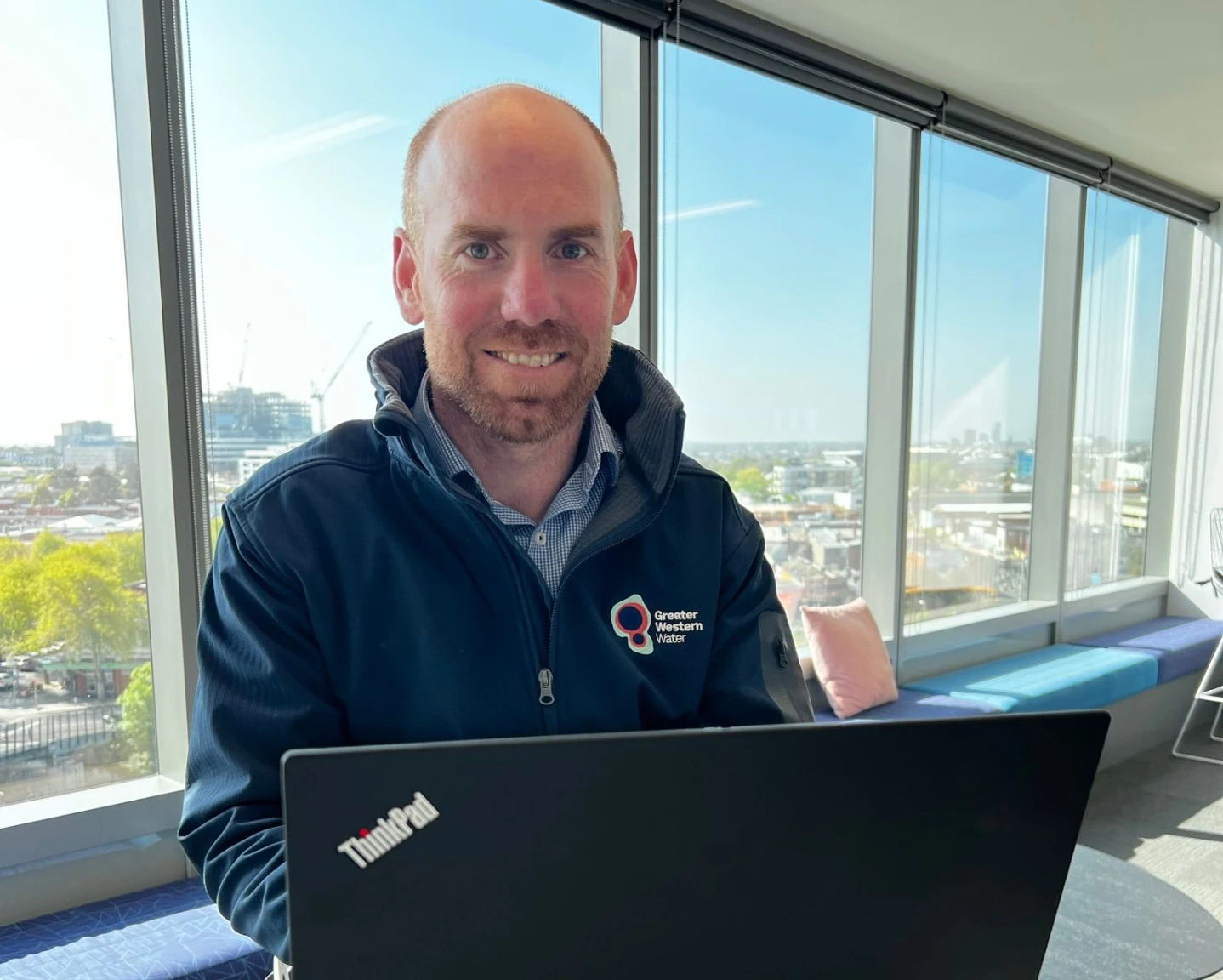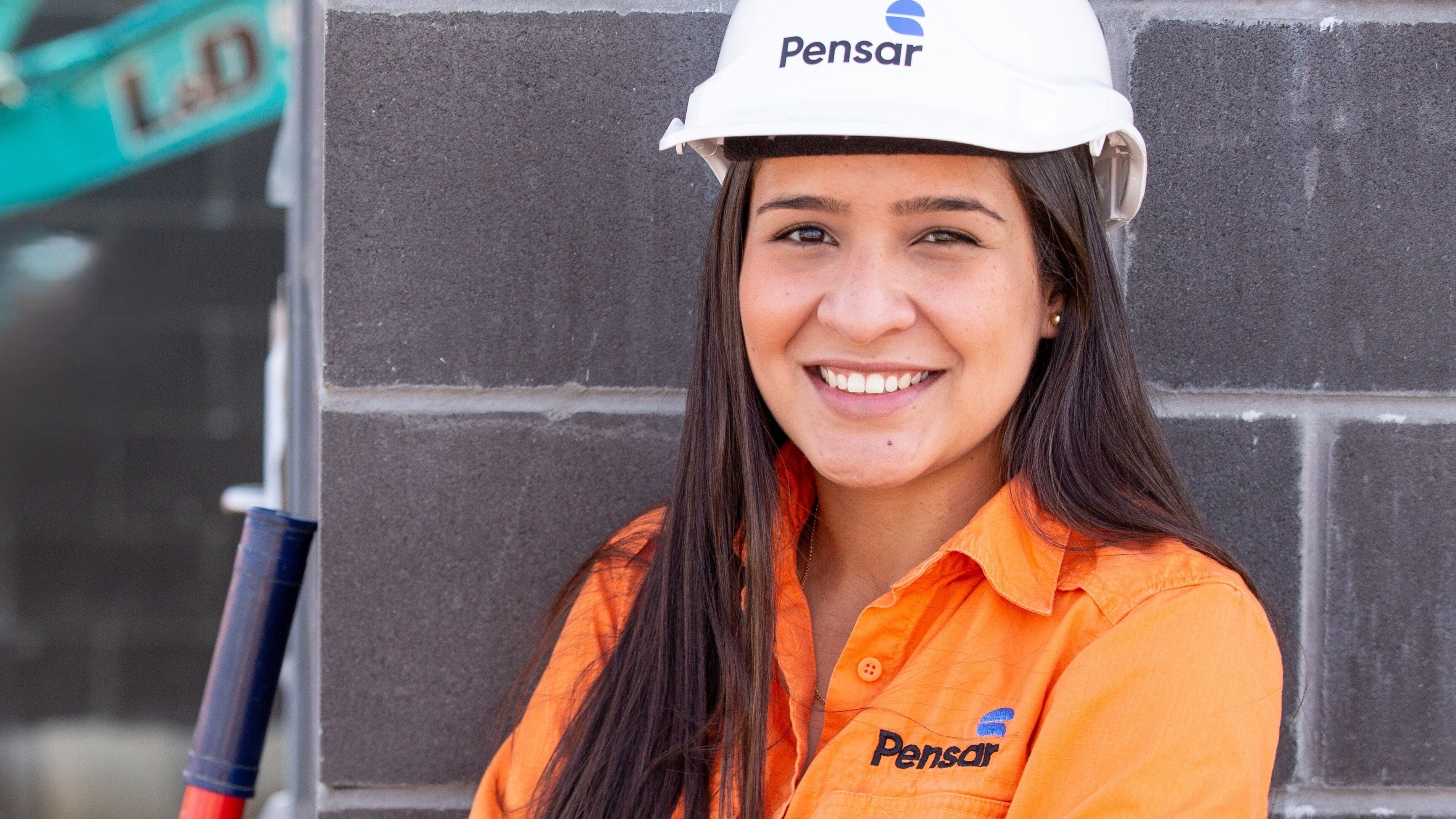Why water?
Michael graduated as a Chemical Engineer during the Global Financial Crisis and wanted a secure job in a growing industry. A friend referred him to a vacancy at Hunter Water Australia with the encouragement that the increasing population means the country needs more drinking water and there are more people to deal with wastewater.
“I didn’t know much about water treatment engineering roles before I got my job, but now I love what I do because I help improve a whole community's health through safe drinking water.
“I like that I’ll always have a job, because the population is continually growing and there’ll always be new challenges to deal with as our understanding of science continues to improve. And it’s pretty exciting, no two days are ever the same and our roles are not just office based, we get out and do a bit of travel as well, getting our boots dirty.”
Diverse problems, sustainable solutions
Climate change presents the water industry with difficult challenges. Natural disasters devastate communities, and damage water and wastewater infrastructure and these essential services must continue to be delivered during these times.
“It’s a challenging time for our industry, but I love a challenge so it’s also an exciting time. It's critically important that we maintain a safe water supply for public health, and it needs to be available 24/7.”
Like many others, the water industry is focused on being more sustainable and achieving a circular economy. Organisations are looking for ways to reduce their carbon footprint in design, operations and for their assets to last longer and reduce waste wherever possible while unlocking recycling opportunities.
“What excites me about working in water is that the future is not all known yet. I get exposed to things that no one's ever come across before, I can't look it up in a textbook or on Google because it’s never been seen before. The water industry is quite young I guess, so I get to navigate unchartered territory, as part of a team, to solve these challenges.
“We have to make smart decisions now to give us greater flexibility and adaptability for what we might need to deal with in the future.”
Collaborating for innovation
As a young water treatment engineer, Michael worked with very experienced principal engineers that were collaborative and willing to share their knowledge and experience.
“I have been lucky to be surrounded by many experts and specialists in their field, which has enabled me to help my clients by tapping into their knowledge. I am constantly exposed to new ideas and innovations that I can put into practice.
“As my career has grown, I have realised that I don’t have to have all the answers myself. We, is better than me, for tackling complex problems and we need a diverse range of views and perspectives to deliver innovative ideas to solve the challenges we face both now and in the future.”
Learning and growing
There are many ways to pursue a career in water. You can work for water utilities or local councils, work in an engineering or operations role, conduct research or testing, or work for a consultant or supplier to utilities, like Michael.
“As a consultant I’m exposed to many parts of the water cycle for different clients and my role includes planning for the future through, feasibility studies, pilot testing, concept and detailed designs for construction of assets and providing specialist technical support for managing operations and maintenance.
“I’ve been lucky to have had great mentors, as well as formal training, to help me grow in my role and take opportunities when they have come up.”
Great people, having an impact
What Michael loves most about his job is helping clients chart a pathway forward finding solutions to challenges. Advancements in science and technology means water treatment engineers can better understand risks and how to mitigate those risks to improve public health outcomes.
“Depending on where the water comes from, there are different water quality risks to manage, and our job is to make sure the water is treated so that it’s safe for drinking and to protect the environment by appropriately treating wastewater.”
This is a common purpose that inspires those working in water.
“People that work in water really care. They’re authentic and want to make a difference to their community’s health and the environment. That’s what makes this industry so great. Together we create the right water solutions to improve lives and support sustainable and healthy communities.





